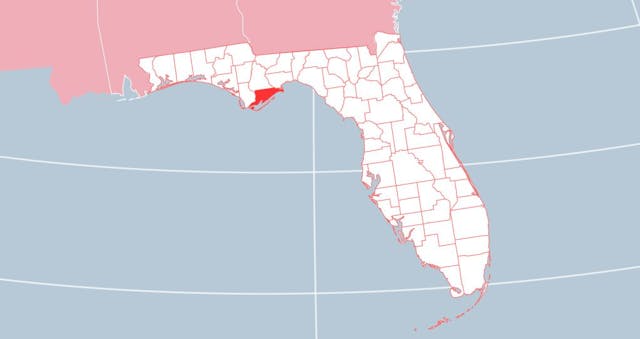Rehabs in Franklin
Franklin is the third-least populous county in Florida with a 12,451 population. It occupies a 2657 km² area along the Gulf of Mexico. The territory is small but almost all the cities are seaside.
It seems that having a gentle climate and fine nature ensures the wellness of residents. However, like in all other regions of the USA drug and alcohol addiction became a serious issue here. According to statistics, the toxin overdose rate is high, especially among young adults. The main abused substances are opioids and illicit narcotics.
Although most addicts have the opportunity to get the required healthcare, death numbers increase. To stop the spread of this disaster the government supports prevention projects. It also provides financial and moral assistance to low-income families who need treatment. Rehabs in Franklin County, Florida are an inseparable part of those programs.
Referring to specialists will save not only your life but also your family and relationships.
Drug and Alcohol Evaluation in Franklin, FL
Evaluation methods and approaches are various. By the way, they differ from one counselor to another. However, the process is almost the same. It is a simple interview for the patient. The latter just needs to answer some questions or pass a test about the illness history.
Meanwhile, assessment is responsible work for the doctor. In this phase, he reveals the reasons and the stage of the problem. Indeed, this is important information to understand organism demands. Besides, it helps to determine what therapies can be effective and with which intensity. In short, physicians decide the treatment type, need for medication, and kinds of therapies. If he feels that there is a risk of co-occurring disorders the addict must take dual-diagnosis check-ups and deeper monitoring.
The Apalachee Center offers psychiatric assessments for adults and children. Primary care and short-term residential cure are also available.
Forcing Your Teen Into Rehab
Therapists believe that healing doesn't need to be voluntary to be successful. So, from this side, there can not be any trouble. What about the law, it allows parents to make vital decisions instead of their up to 17 years old child. These two are the points that parents worry about most. But, above all, we should think about our teens’ mental health. Won’t force backfire and make him/her more aggressive? Of course, age and sensitivity play a big role. But in most cases, if parents talk to them like a friend in the early stages of the disease the outcome is favorable. Thus, even if they don’t want to enter a rehab most likely they will not refuse to do that.
Treatment Programs in Inpatient and Outpatient Facilities
As we told above, the choice of a facility starts with evaluation and is based on its results. Therapists suggest therapies considering what substance(s) and how long you used and what symptoms you have. The main options of the cure are:
Outpatient
Partial hospitalization
Intensive outpatient
Long-term or short-term inpatient
Despite the wide variety, there are some general procedures like detox and aftercare. Every cure plan begins with ridding the body of addictive substances. Thus, detox is your fight against chemical dependence. Cutting off the usage may cause setbacks, such as
Nausea
Sweating
Anxiety
Insomnia
Muscle pain
Taking painkillers without a prescription is more harmful than narcotics themselves. So, instead of self-medication, it is better to prefer medical supervision and safe detox.
Payment Ways in Recovery Centers in Franklin, Florida
Fortunately, there are many payment methods you may benefit from. Like other medical services in the case of addiction care, customers can cover costs with their private insurance. Clinics in Franklin accept more than 33 third-party and 2 state-funded (Medicaid, Medicare) insurances. If you don’t have any of them but need urgent aid, hospitals offer sliding fee scales according to the customer's ability to pay. Moreover, you have the option to recover at non-profit centers if you have a low income.

